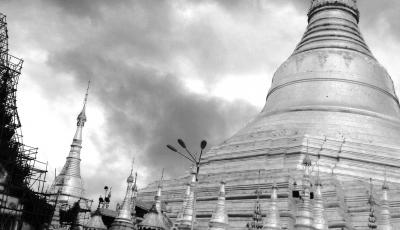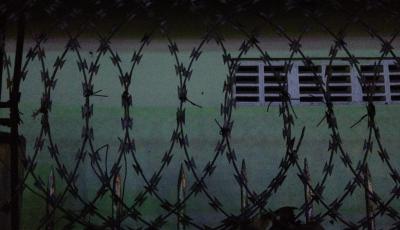Legacies of Detention in Myanmar
This is the thirteenth installment of the themed series on Border Criminologies network members. The series aims to present our members’ ongoing research, recent publications, new course modules they might be developing, grants and awards, partnerships and collaborations, and questions they have been considering or struggling with.
Posted:
Time to read:
Post by Liv S. Gaborit, PhD Student, Roskilde University and DIGNITY – Danish Institute Against Torture.

A political space has opened in Myanmar and changes are taking place. It’s in this context a new research programme called Legacies of Detention in Myanmar was launched, which seeks to document the changes as they occur by studying the relations between state and citizen as illustrated by the relations between prison and prisoner. The research programme explores the historical and contemporary role of detention in Myanmar and its significance for the reconfiguration of state and society. Through the concept of ‘legacy,’ the programme seeks to capture the persistence and mutation of practices of detention as they affect individuals, institutions, state, and society.
The programme is based at DIGNITY – Danish Institute Against Torture headed by Andrew M. Jefferson and includes a PhD project by myself, a postdoctoral fellowship by Tomas M. Martin, and a partnership with the Department of Law at University of Yangon and the network for human rights lawyers called Justice for All. The programme will approach legacies by studying three dimensions―experiences, technologies, and politics of detention―to explain the ambiguous and contested nature of detention practices and efforts to reform them, and aims to offer insights to policy-makers committed to supporting nascent moves toward rule of law and the realization of democracy and human rights.

The project will explore issues such as relations and identity of the more than 136 different ethnic groups in the country to study the connection between state and citizens through documenting experiences of detention practices. Some of these groups engage in armed struggle to free themselves from the influence of the state and the state has responded by seeking control over its territory and population through military operations and policies seeking to create a shared national identity, as evident in, for example, the presidential speeches of former president Thein Sein. This places the study in a melting pot filled with concerns for nationalism, ethnic identity, natural resources, and political influence, in which political imprisonment, deprivation of the freedom of movement, and the creation of IDP camps become part of the conflicts.
The study will apply field based ethnographic methodology inspired by action research. To conduct fieldwork in prisons in Myanmar is to endeavour into a complicated setting for fieldwork filled with sensitive issues. At the moment, access to prisons in the country is very limited. Some of the few actors that have access are family members, lawyers, and the ICRC, whom have recently regained their access to conduct monitoring visits after a fall out with the government in 2012. Researchers or NGOs offering service delivery have so far not been granted access to prisons. The prisons will therefore be approached incrementally, starting with indirect studies of the prisons through fieldwork with ex-prisoners and then slowly approaching the actual prisons. Many prisoners have been released on amnesties, both historically and in connection to the recent election. Despite ex-prisoners’ first-hand knowledge of how the state can act to stifle opposition, they are among the most outspoken critics of the continued use of detention to close down political space.
It’s with great excitement that I venture in to this new project and I hope you will follow and contribute to discussions as the project progresses. Updates will be posted on this blog as fieldwork progresses.
Any comments about this post? Get in touch with us! Send us an email, or post a comment here or on Facebook. You can also tweet us.
__________
How to cite this blog post (Harvard style):
Gaborit, L. S. (2016) Legacies of Detention in Myanmar. Available at: https://www.law.ox.ac.uk/research-subject-groups/centre-criminology/centreborder-criminologies/blog/2016/07/legacies (Accessed [date]).
Share:








